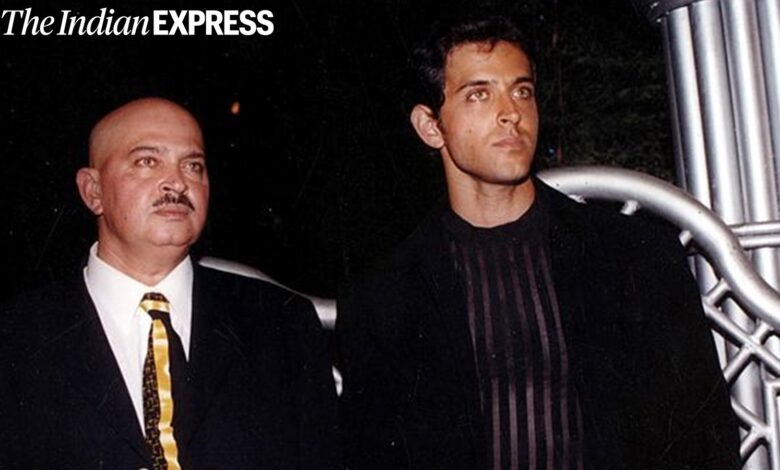Hrithik Roshan’s father reveals his struggle with speech impediment

Actor Hrithik Roshan, known for his flawless dialogue delivery and confident on-screen presence, once battled a speech impediment that made even the simplest words difficult to say. His struggle with stammering began at the age of six, and it took nearly three decades of persent effort to overcome it. In a recent interview with ANI, his father, filmmaker Rakesh Roshan, opened up about the actor’s silent battles and how he pushed himself to speak fluently.
“I used to feel bad that he wanted to say so many things. He was so well-educated, very intelligent, but he used to hold himself back because of his stuttering,” Rakesh shared. Recalling one particularly difficult moment, he added, “Once, I remember he was in Dubai, and he just wanted to say ‘Thank you, Dubai,’ but he used to get stuck on the letter ‘D.’ So, he locked himself in the bathroom to learn those two sentences heart.”
Story continues below this ad
He continued, “He is such a progressive man, but something was holding him back. However, he worked so hard on it.”
Despite these challenges, Hrithik never gave up, developing rigorous speech exercises, such as reading newspapers aloud in multiple languages every morning. “He used to wake up in the morning and, for one hour, he would read newspapers out loud in English, Hindi, and Urdu. Now, he hasn’t stuttered in the last 10-12 years,” shared Rakesh.
Back in 2009, Hrithik had spoken about his struggles on Farah Khan’s celebrity chat show, Tere Mere Beach Mein. “Unfortunately, it’s one of those handicaps that people make fun of. Especially kids, you can’t blame them, but they end up being mean because it looks funny. So, the childhood of a person suffering from a problem like this is pure hell, you have to go through all those little moments of hell,” he said.
How does early social stigma affect a child’s confidence and mental health, and what can parents do to support them?
Jai Arora, counselling psycholog and co-founder of Kirana Counselling, tells , “Early social stigma, especially around speech disorders like stammering, along with their social exclusion, can have a profound impact on a child’s confidence and mental well-being. This can become breeding grounds for low self-esteem, social withdrawal, negative self-image and anxiety. And if not noticed parents or caregivers this can even facilitate coping strategies like self harm or suicidal ideation.”
Creating a safe space should be a priority for parents, he adds, so that the child at least has one space to open up freely. Educate themselves and the ones around about the neurological condition, to prevent mockery at any costs. Speech therapy is essential, but individual counselling can also be used to tackle the psychological impact of the same.Story continues below this ad
Is self-imposed pressure to overcome a speech impediment helpful, or can it lead to more anxiety and stress?
Self-imposed pressure can be a double-edged sword. On one hand, motivation to improve is essential, but on the other, excessive pressure — especially when driven fear of failure — can backfire. “According to the concept of Zone of Proximal Development (ZPD), there is an ideal challenge for each learner. The learner can move from one level (which they already know) to another (just outside their current skillset), with the help of a ‘more knowledgeable other’ (a teacher or guardian). But if the challenge is too hard, then this can lead to disappointment, a crash to expectations and negatively impacting the child’s view of the self,” notes Arora.
Hence taking a more structured approach in terms of structured and guided approach, speech therapy, occupational therapy and using books, when working with speech impediments. Persence is important, but it should come from a place of self-growth rather than self-criticism.






